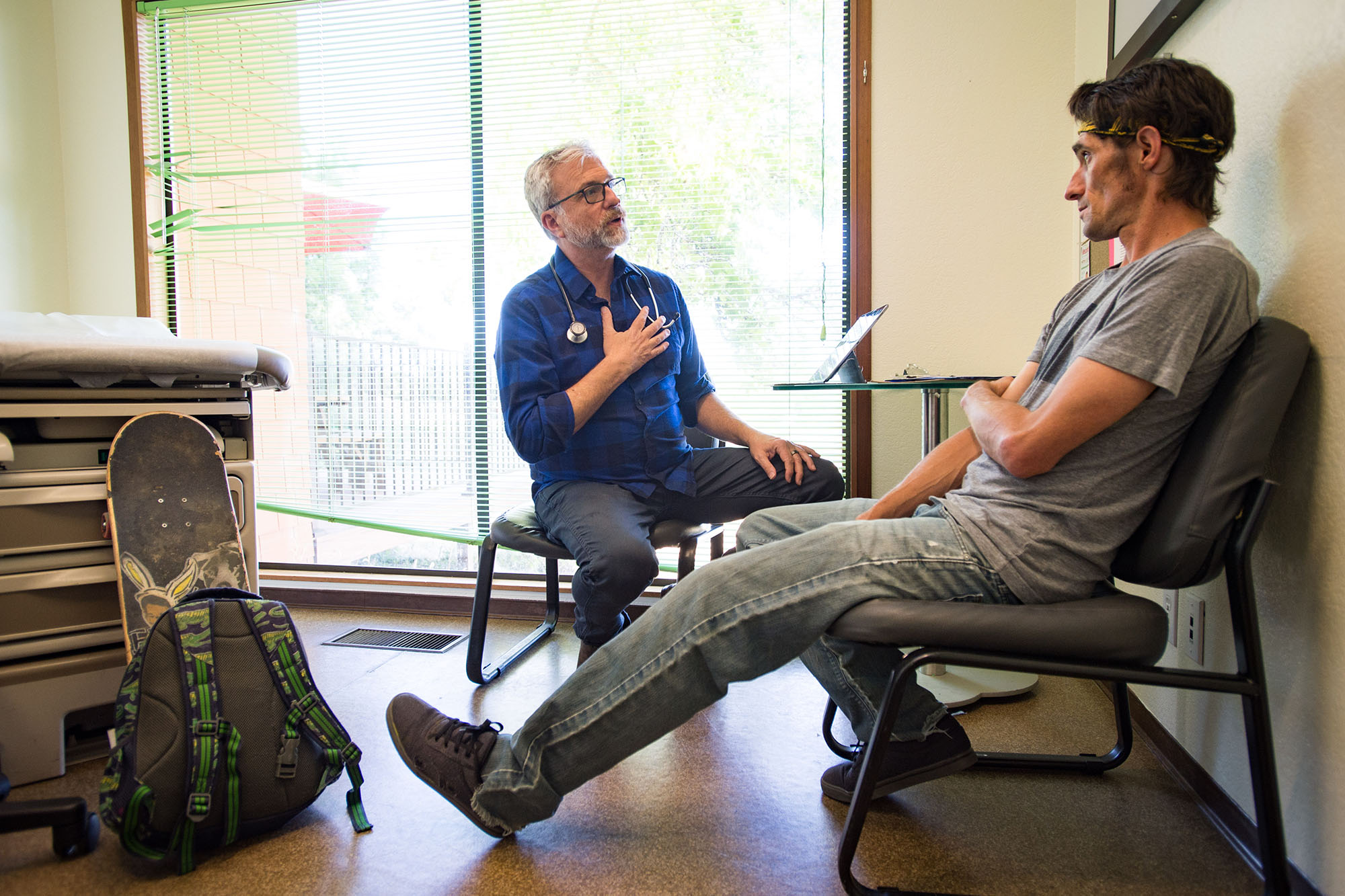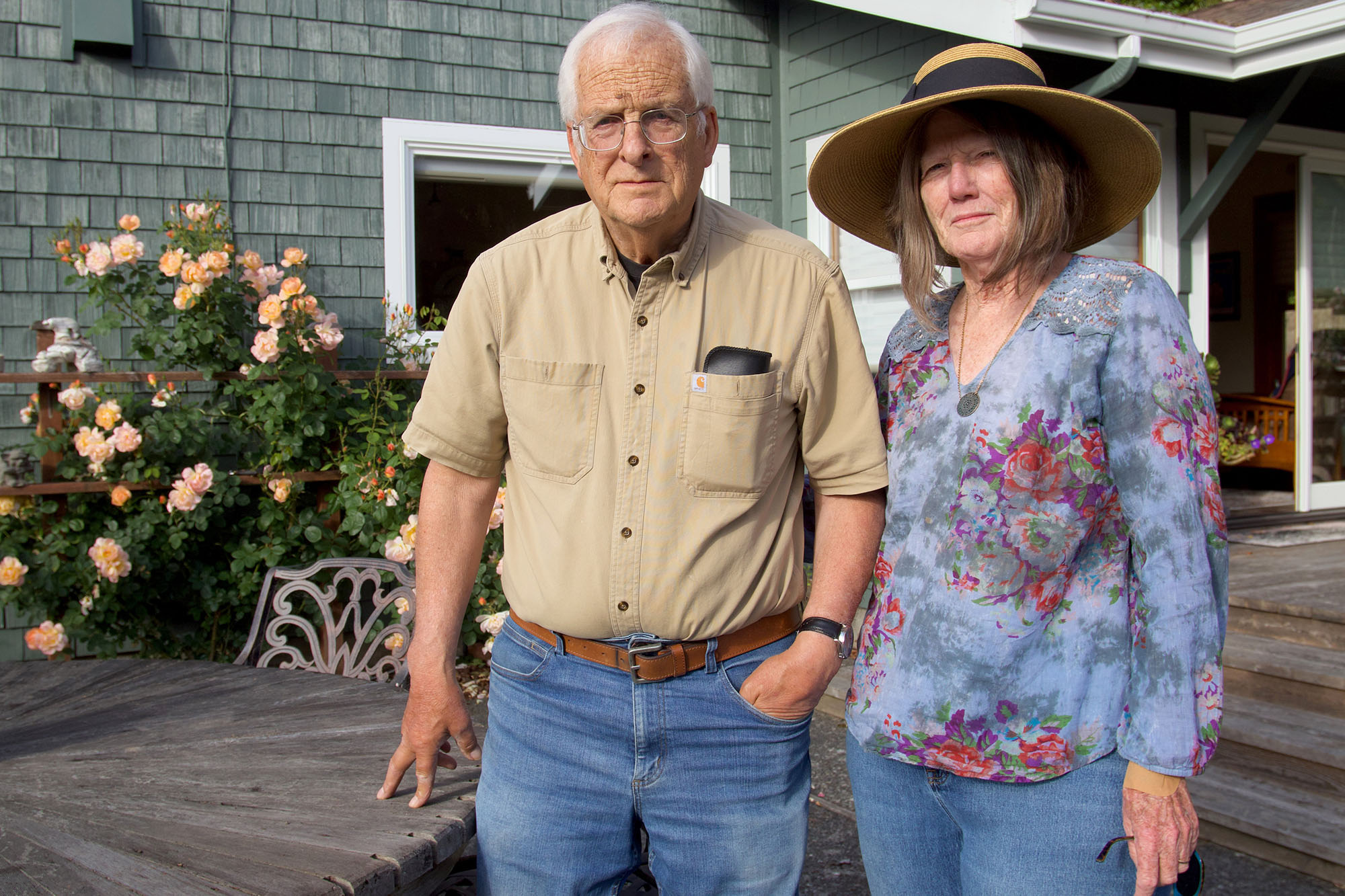|
Getting your Trinity Audio player ready…
|

The devastating and deadly wildfires that spread through Napa and Sonoma Counties in the fall of 2017 highlighted the importance of the people who provide relief and support in communities that others are not prepared to reach. One such group of relief workers is promotoras, who are similar to community health workers, except they are usually Spanish-speaking immigrant women who focus on connecting Latinos/x with needed medical and social resources.
In those wine country disasters, promotoras ensured that Latino/x families were not left behind. Daysi Carreño, a 42-year-old immigrant from the Mexican state of Michoacan, was one of them.
“I didn’t know who the promotoras were at the time of the fires,” Daysi said. It was only when she was seeking help for her own family that she learned about these immigrant women and was inspired by their work and contribution to the community.
Now, after years working as a volunteer and receiving stipends only when funding was available, Carreño is one of the leaders in the Promotora Cooperative Initiative, a pilot launched by the Latino Community Foundation (LCF). The goal is to give immigrant women the opportunity to build cooperative small businesses that fairly compensate promotoras for their work.
Trusted Leaders, Frontline Responders
The initiative — which was first shared with potential funders and community members at a roundtable meeting in Sonoma last spring — taps into the influence of promotoras as trusted leaders in their communities who have the capacity to connect and mobilize the delivery of critical services. Over the years, Latino/x families have struggled to access health care services, affordable housing, and high-quality schools for their children.
The Promotora Cooperative Initiative builds on the Just Recovery Partnership established by LCF in 2017 as part of the Wildfire Relief Fund. The partnership developed a regional network of promotoras who became the frontline responders for thousands of vineyard workers and immigrant families uprooted by the wildfires. Latinos/x represent nearly 70% of the workforce at vineyards and other agricultural businesses, according to LCF, and the California Employment Development Department estimates they make up more than 40% of the workforce of the tourism and hospitality industry.
The 2017 disaster was a personal turning point for Carreño, who encountered numerous obstacles in her search for assistance after she, her husband, and their three children lost their rental home to the fires. Carreño also witnessed the struggles other Latinos/x faced to seek and receive assistance. She saw working families with low incomes disqualified from government assistance and observed how some were reluctant to apply for help due to their immigration status.
Carreño wanted to find a way to turn her experience into an opportunity to help others. When she ran into a group of promotoras affiliated with Just Recovery, she jumped at the opportunity to join the partnership. The effort was so effective that it expanded during the Covid pandemic, leading vaccination campaigns and providing other services in Latino/x communities.
Now, the Promotora Cooperative Initiative seeks to support promotoras in becoming social entrepreneurs with more ownership and control of their work as well as the ability to develop economic growth through cooperative businesses. They will be co-owners who operate under a sustainable model to provide services to nonprofits and health centers. LCF will help build the infrastructure needed and will provide guidance through business coaching, branding, marketing, and support.
Cultivating the Promotora Cooperative Initiative
The shift to the entrepreneurial approach stands in stark contrast to the voluntary — and often unrecognized — service of promotoras across California over the years. LCF said that despite being a lifeline for Latinos/x and immigrant communities, “promotoras have largely remained excluded workers facing barriers to traditional employment benefits and protections.”
To move the Promotora Cooperative Initiative forward, LCF has joined with two community-based organizations — UpValley Family Centers in Napa and the ALMAS Libres of Raizes Collective in Sonoma — whose promotoras will participate in the pilot. “We don’t pay promotoras because they have to be employees to be paid, and we don’t have the capacity for employees,” said Indira Lopez of UpValley Family Centers. “That’s why this initiative is so important.”
For Carreño, now an organizer with ALMAS Libres, the initiative has enabled her to become a social entrepreneur. “My mom sent me to the US to learn what it’s like to live in a different country and have a better life,” she said. While years of low-paying jobs and the tragic wildfire of 2017 taught Carreño about the struggles of living as an immigrant in this country, helping her community as a promotora has put her on a sustainable path to a promising future.
Authors & Contributors

Silvina Martinez
Silvina Martinez is a public relations consultant specializing in health care and multicultural communications. A former newspaper reporter in Latin America and California and a medical interpreter herself, she works on health care initiatives and policies designed to expand access to care as well as educate and empower patients to take control of their health.

Paige Ricks
Paige Ricks is a photographer based in Oakland, California. With her background in journalism, storytelling is integral to her photography. While studying at UC Berkeley Graduate School of Journalism, she quickly gravitated towards her camera, blending writing with visual narratives. Her photography is bold, expressive, and optimistic, often utilizing a saturated color palette to highlight her subjects’ vibrant energy.
Ricks also holds a master’s of fine art in photography from the Academy of Art in San Francisco, a Bachelor of Arts from CSU Fresno, and she recently completed a Graphic Design Certificate from UC Berkeley Extension.





